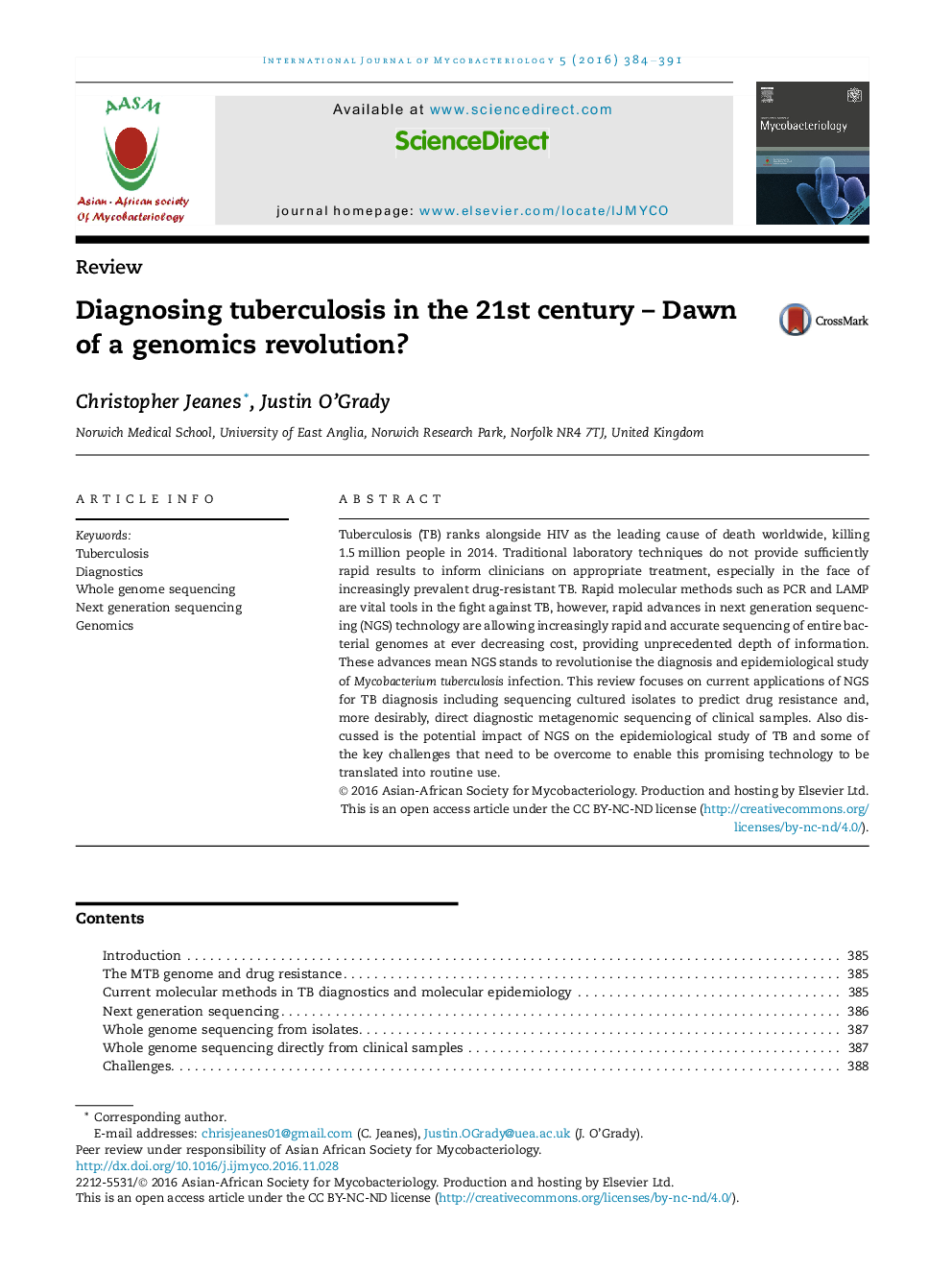| Article ID | Journal | Published Year | Pages | File Type |
|---|---|---|---|---|
| 8746011 | International Journal of Mycobacteriology | 2016 | 8 Pages |
Abstract
Tuberculosis (TB) ranks alongside HIV as the leading cause of death worldwide, killing 1.5Â million people in 2014. Traditional laboratory techniques do not provide sufficiently rapid results to inform clinicians on appropriate treatment, especially in the face of increasingly prevalent drug-resistant TB. Rapid molecular methods such as PCR and LAMP are vital tools in the fight against TB, however, rapid advances in next generation sequencing (NGS) technology are allowing increasingly rapid and accurate sequencing of entire bacterial genomes at ever decreasing cost, providing unprecedented depth of information. These advances mean NGS stands to revolutionise the diagnosis and epidemiological study of Mycobacterium tuberculosis infection. This review focuses on current applications of NGS for TB diagnosis including sequencing cultured isolates to predict drug resistance and, more desirably, direct diagnostic metagenomic sequencing of clinical samples. Also discussed is the potential impact of NGS on the epidemiological study of TB and some of the key challenges that need to be overcome to enable this promising technology to be translated into routine use.
Related Topics
Life Sciences
Immunology and Microbiology
Virology
Authors
Christopher Jeanes, Justin O'Grady,
